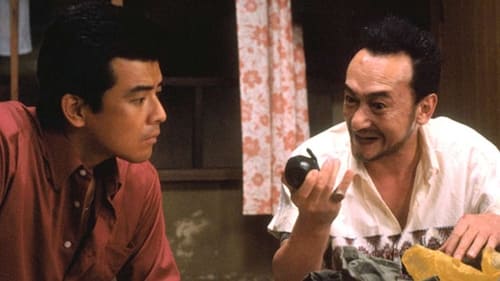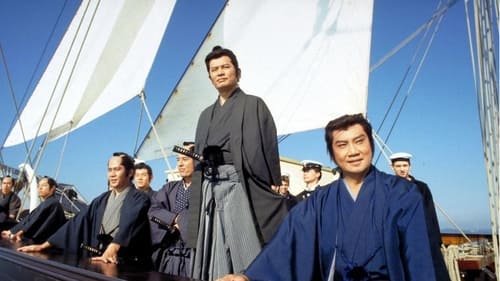
Screenplay
During the late Heian era in Japan a famous duel took place between the warrior monk Musashibo Benkei and a slender young man of high rank named Shanao. This was the battle at Gojo Bridge, and while Benkei had taken 999 sword from his vanquished opponents, he was soundly defeated by the young flute-playing samurai. Swearing allegiance to the superior swordsman, Benkei became his loyal vassal and accompanied the young man who went on to fame as Minamoto Yoshitsune, the general who defeated the Taira clan at the Battle of Dan no Ura thus leading the Genji over the Heike as the most powerful clan in the nation. With superb performances by some of Japan's greatest stars, including Satomi Kotaro and Tanba Tetsuro, history comes to life in this action-packed production.

Screenplay
There are men in this world who seem to have been born to be a villain. His upbringing, his sexuality, everything about him was suited to being in the criminal world. However, he also had a loving wife and children. This is the story of a man who throws himself into a deadly struggle on the front lines of a huge violent war, while at the same time seeking the happiness of his family as a good husband and father.

Screenplay
After the fall of the Tokugawa Shogunate, there was a series of battles fought while the former supporters of the Tokugawa shogunate retreated to the north where they actually started a sovereign nation that was recognized by more than one European country. Survivors of the Shinsengumi were among the followers of Enomoto Takeaki who took them to the northernmost island of Ezo where they fought their final battle at the star shaped fort, Goryokaku. The Japanese Civil Wars fought in the name of the emperor signaled the complete end of the feudal system and Japan’s entry into the modern world as those brave samurai tried to halt progress and learned that the age of modern warfare and weaponry had passed them by. Swords were no match for rifles and cannons, nor was any man a match for the power of the imperial flag. Japanese loyalty to the emperor has long defined the nation and culture despite the changing times.


